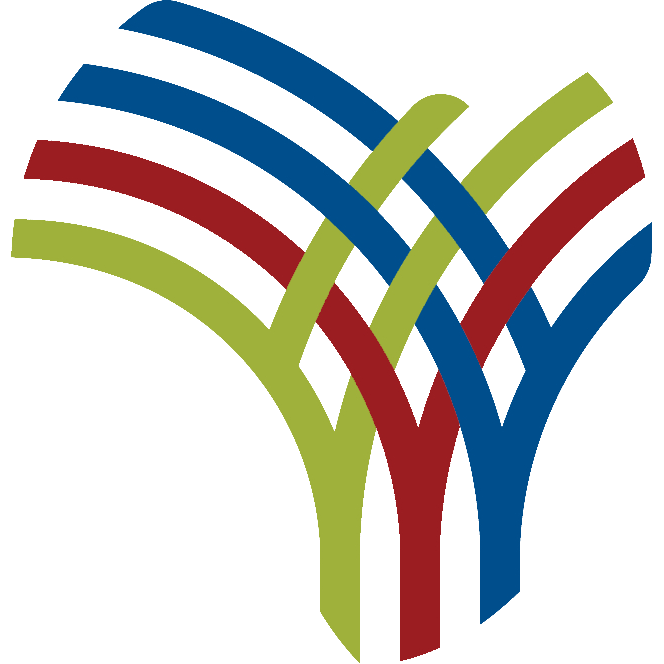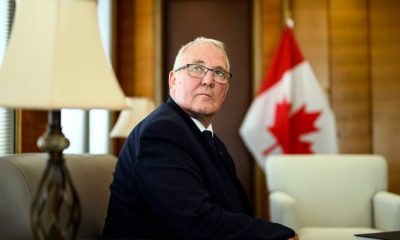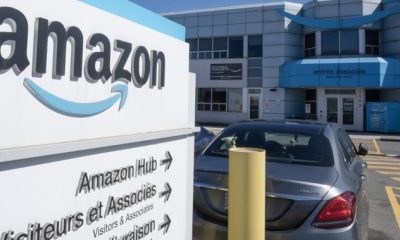General News
Nigeria: World Economic Forum 2023 – Key Takeaways for Nigeria As New Regime Sets in the Horizon

As Nigeria prepares to see the back of the current political regime, the just-ended 2023 World Economic Forum, WEF’23, held in Davos, Switzerland, appears to be setting agenda for a new leadership in the country expected to be in place in four months’ time.
But the key takeaways from the WEF’23 also seems to show a world moving on a pathway to a better future while Nigeria looks like an onlooker going by the conclusions at the meeting against both present and possible future of the country especially in socioeconomic parameters.
The WEF’23 brought together world leaders in the first major international gathering of the year to address ongoing economic, energy and food crises while laying the groundwork for a more sustainable, resilient world.
With over 480 sessions, more than 2,700 leaders – including over 350 public figures government leaders and 47 heads of state – came together at the Annual Meeting 2023 to address the world’s most pressing challenges.
Perfect storm, global solution
While many economists forecast recessionary risks in 2023 and see geopolitical tensions continuing to shape the global economy, there are glimmers of hope that pressures on food, energy and inflation may be peaking.
“Our world is plagued by a perfect storm on a number of fronts,” said United Nations Secretary-General António Guterres, who called for urgent action on a number of interconnected challenges, including the global economic crisis, climate, income and gender inequality, US-China relations, Russia’s invasion of Ukraine and the lingering effects of the COVID-19 pandemic. “Now more than ever, it is time to forge the pathways to cooperation in our fragmented world.”
One of the key takeaways is that cooperation is becoming more virtual and the Forum’s Global Collaboration Village showed how the metaverse can be harnessed for inclusive and effective international action. With the golden age of artificial intelligence under way, technology will provide more ways to bring people together.
In a way Nigeria is picking up in the technology industry as the contribution of the Information and Communication Technology, ICT, sector has remained the major contributor to the GDP in the past four quarters. But that is in-country performance. On a global scale, the country largely lags behind especially on account of relatively poor ICT infrastructure.
“Through the power of collaboration, innovation, human goodwill and ingenuity, we have the capacity to turn challenges into opportunities. This is the spirit of solving problems through mutual respect and cooperation. This is the spirit of Davos,” said Klaus Schwab, Founder and Executive Chairman, World Economic Forum.
As crises converge, so too must the solutions. The Annual Meeting emphasized connections across big systemic challenges.
The Global Risk Report, Nigeria’s country risk
The Global Risks Report 2023 ranks the cost-of-living crisis as the most severe short-term global risk. The Risks community identified three priorities for its mandate: risk foresight, strengthening the quantification of global risks; and linking foresight and preparedness.
The US announced new resources for the Global Alliance for Trade Facilitation to advance work in bright spot countries making tough reforms.
A WEF initiative is supporting the WTO’s Draft Investment Facilitation for Development Agreement, which is expected to be completed by the first half of 2023.
A majority of WEF’s Community of Chief Economists expect a global recession in 2023; leaders stressed the need to respond to the cost-of-living crisis through boosting open trade, managing fiscal and monetary policies and increasing productivity.
Bringing the global risk issues and solutions closer to Nigeria, The Forum, in partnership with the Africa Continental Free Trade Area, AfCTA, Secretariat, launched the first-ever report by global business on the opportunities presented by the continent’s common trade initiative, with participants agreeing to develop an action plan for the Annual Meeting 2024.
Nigeria’s country risk is far from meeting the global benchmark required for the kind of solutions being proffered at the WEF’23, especially in the area of foreign investment and trade facilitation.
It is only hoped that its preparations and readiness for participation in the AfCTA would spur some positive thinking around this area in the in-coming regime. But obviously, the clearly unprepared current regime which is participating in the development of the 2024 action plan would not be available to see through the implementation.
Most likely, Nigeria would miss out in the USA’s new resources for the Global Alliance for Trade Facilitation to advance work in bright spot countries making tough reforms.
Global Cybersecurity upscaling
At the WEF’23 the new Global Cybersecurity Outlook report was launched, providing a roadmap for leaders as they grapple with new cybersecurity trends that disrupt businesses and undermine societies’ social and economic activities.
At the WEF’23, the Cybercrime Atlas was launched with support from Fortinet, Microsoft, PayPal and Santander to facilitate a collective effort to map the cybercrime landscape and promote operational collaboration.
The Defining and Building the Metaverse Initiative Steering Committee reviewed first output on
interoperability and future themes of privacy, security, safety and identity.
These are the way forward for the same challenges businesses and even individuals are facing in Nigeria which appears to be neglected by the authorities for too long. At the level of the general public, internet fraud impedes trust in technology based transactions, and consequently limits growth. At the corporate level, businesses spend fortunes in building fire walls.
On jobs, skills and education
The WEF’23, discussed extensively, the issue employment and labour across the globe providing new approaches and solutions to unemployment and underemployment. The Forum announced that more than 350 million people are being reached with better skills, jobs and education through commitments made as part of its Reskilling Revolution initiative, which works with more than 20 governments, 60 global chief executives and a network of over 350 organizations.
More than 310 million people are being reached through 110 commitments made by businesses and governments, while an additional 40 million people are being reached through a network of 17 national Skills and Education Accelerators.
Twenty ministers and CEOs joined the Jobs Consortium to drive and implement a new vision for a better future of work.
The Good Work Alliance aligned on how to attract talent and drive retention, and build a resilient, equitable and human-centric future of work. This included newly published metrics and reporting guidelines to help companies establish a benchmark for job quality.
The newly created Education Industry community held its inaugural meeting to discuss the growing economic importance of the sector and its role in shaping the future of human capital; more than 10 university leaders met to discuss the future of higher education and committed to shaping a more cooperative future on education, science and research.
Not only did Nigeria record conspicuous absence from all the initiatives raised at the WEF’23 on job re-position, there are no road maps even as the country’s unemployment rate soars over the years, presenting the incoming regime with a huge task of containing the youth restiveness arising from joblessness. But the WEF’23 resolutions and action plans also present a guide to the incoming regime on strategy to adopt.
On equity, inclusion and diversity
There were about 27.5% of women participants at the WEF’23 bringing the Forum closer to its objective of doubling women participation by the Annual Meeting 2030.
Moreover, the Forum’s Global Shapers Community launched its Davos Hub, which will unite diverse and dynamic young people from the Annual Meeting’s host city who, together, will create projects and change for their communities.
The Global Parity Alliance (GPA), a global coalition of 250 CEOs, ministers and other leaders, met to design strategies to renew growth and resilience through diversity, equity and inclusion within organizations and across the corporate ecosystem. The alliance launched the Lighthouse Programme, highlighting best-in-class diversity, equity and inclusion initiatives from leading companies around the world.
Nigeria’s diversity which appears an albatross in almost every front could benefit from a strategic engagement of each group with opportunities for shared vision and actions for inclusivity the same way WEF’23 is moving.
Disclaimer: No copyright infringement intended. All rights and credits reserved to respective owner(s).























